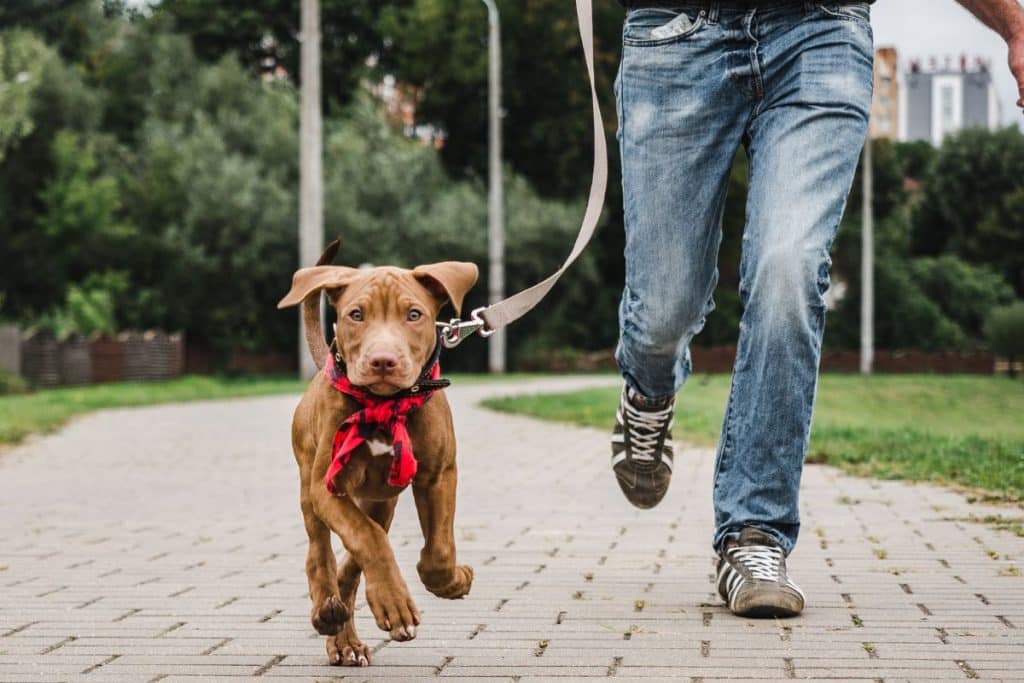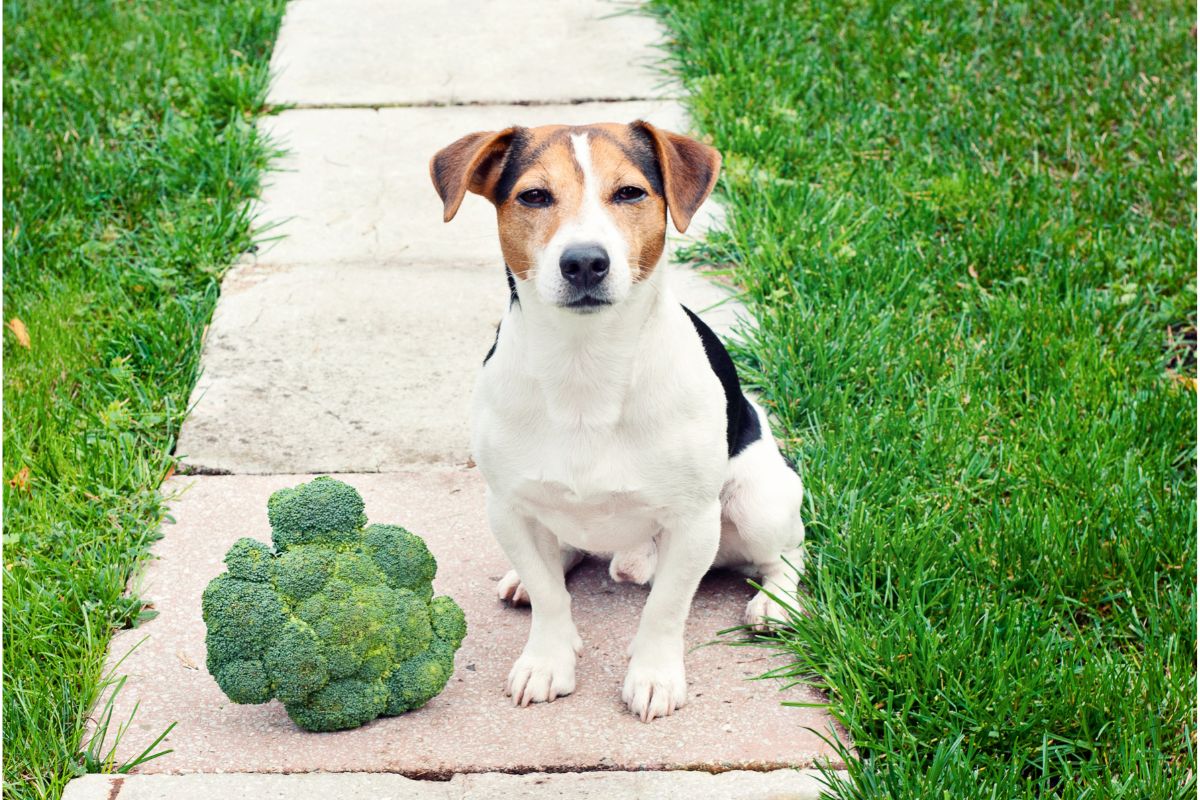Being a dog owner in the United Kingdom (or any other part of the world) comes with unique responsibilities. And one important aspect that often goes unnoticed is the environmental impact of our furry companions.
In today’s world, where sustainability is a growing concern, it’s crucial to embrace eco-friendly practices as dog owners and contribute to a greener future.
And trust me, I know how intimidating it can be when you’re just starting out. That’s why I made this guide only after following these practices for a few years.
The biggest concern I want to tackle right off the bat is if it’s environmentally friendly to have / own a dog. Unfortunately, the numbers say that it’s not.
Technically, some studies have proven that owning a pet dog can harm the environment, albeit the reasons are somewhat indirect. The biggest environmental concern is the production of meat-based pet food that can result in a medium-sized dog having a carbon footprint of a large SUV.
However, just like with our personal lifestyle, you can take steps to reduce your doggy’s carbon footprint. Whether you’re an eco-enthusiast or a beginner, I’ll help you with practical tips and insights to become an eco-friendly dog owner.
1. Adopt an eco-friendly mindset to make better choices.
It all begins with awareness. By educating ourselves about the environmental consequences of our decisions, we can make more informed choices that align with our values.
One crucial aspect of this is responsible dog ownership. Provide proper training and socialisation for your dog. Well-behaved dogs are more likely to respect their surroundings, reducing the risk of environmental damage.
2. Switch to buying sustainable dog food.

Start by researching dog food brands that prioritise sustainability and environmental responsibility. Look for brands that use organic, locally sourced ingredients and practice ethical and transparent manufacturing processes.
Alternatively, you can consider homemade or raw food diets for your dog. Homemade meals give you full control over the ingredients, allowing you to use organic and responsibly sourced produce.
Raw food diets, also known as BARF (Biologically Appropriate Raw Food), consist of feeding your dog raw meat, bones, fruits, and vegetables. This diet’s proponents believe it closely mimics what dogs eat in the wild.
Disclaimer: You must ensure you meet your dog’s nutritional needs. Choosing alternate dog food without a vet’s guidance can be incredibly risky.
Read More: Best Eco-Friendly Dog Food Options in UK 2023 & How to Choose One
3. Only purchase eco-friendly dog accessories.
Start by considering eco-friendly choices for collars, leashes, and harnesses. Look for products made from sustainable materials such as hemp or recycled materials. These options are not only durable but also reduce the use of non-renewable resources.
Plenty of environmentally friendly alternatives are also available for dog beds and toys. Look for beds made from natural fibres since these materials are comfortable and biodegradable, reducing waste when replacing them.
Buy Eco-Friendly Dog Collar on Amazon
4. Adapt sustainable dog waste management techniques.
For waste management, consider using biodegradable waste bags made from plant-based materials. These bags break down naturally and minimise the environmental impact of disposing of your dog’s waste.
Additionally, explore sustainable poop disposal methods, such as composting dog waste in dedicated compost systems. It breaks down the waste into organic matter that can be safely used in non-edible garden areas.
Important Guidelines:
1. It’s important to note that dog waste compost should never be used on plants intended for human consumption.
2. Dog waste should never be flushed down the toilet or disposed of in regular household waste bins. Flushing dog waste can introduce harmful bacteria into waterways, while regular waste bins are not designed to handle pet waste appropriately.
Buy Biodegradable Dog Poop Bags on Amazon
5. Only use green transportation for dogs.

One of the most eco-friendly modes of transportation for dogs is walking. It may seem like it, but I’m not kidding. Not only does it provide exercise and mental stimulation for both you and your dog, but it also eliminates the carbon emissions from driving.
Consider cycling or using public transportation for longer distances or when walking may not be feasible. Many cities in the UK are bike-friendly, offering designated paths or bike racks that can accommodate your dog’s carrier or trailer.
Public transportation systems also often allow well-behaved dogs on board but be sure to check the specific regulations and requirements of the transportation company before travelling.
Additionally, carpooling with other dog owners can be a greener alternative to individual car trips. By coordinating transportation with friends or neighbours who also have dogs, you reduce the number of vehicles on the road, thus decreasing carbon emissions.
6. Use eco-friendly grooming and cleaning practices.
Grooming your dog is essential for their hygiene and appearance and can also be an opportunity to embrace eco-friendly practices.
When choosing grooming products, look for natural and organic ingredients. Avoid products that contain harsh chemicals or synthetic fragrances, as they can be harmful to your dog’s health and the environment.
Additionally, consider the water usage during bath time. You can conserve water resources by reducing water use or reusing bathwater for other purposes. Alternatively, explore dry grooming techniques that minimise excessive water usage.
Choose machine-washable products made from sustainable materials for cleaning dog bedding and toys. This allows for easy cleaning and reduces the need for frequent replacements, minimising waste. Additionally, consider using eco-friendly laundry detergents free from harsh chemicals and phosphates.
Buy Vegan & Cruelty-Free Dog Shampoo by Faith-in-Nature on Amazon
As an eco-friendly dog owner in the UK, you have the power to support and promote businesses that prioritise sustainability and environmental responsibility.
Look for stores that offer a wide range of sustainable options, such as organic and natural dog food, biodegradable waste bags, and environmentally friendly dog accessories.
Additionally, consider supporting local businesses that prioritise sustainability. By shopping locally, you reduce the carbon footprint associated with shipping and transportation.
By shopping from eco-conscious pet stores and utilising sustainable dog services, you can contribute to the greener and more sustainable pet industry.
Read More: Beginner’s Guide to High-Fibre Dog Food in the UK 2023
8. Be smart with your dog’s toy stash.
Toys can also contribute to unnecessary waste if not managed wisely. One eco-conscious approach is to recycle household items into pet toys.
For example, old t-shirts can be braided into tug toys, and empty plastic bottles can be safely secured inside socks to create crinkle toys. By repurposing items that would otherwise be discarded, you give them a new life while minimising waste.
Additionally, consider passing your unloved dog toys to other pet owners or donating them to animal shelters. Toys that are still in good condition can bring joy to other dogs, and by extending the lifespan of toys, you reduce the need for constant replacements.
9. Adopt a pet instead of buying one.
One of the most impactful ways to be an eco-friendly dog owner in the UK is to adopt a pet instead of buying one. Adopting a pet from a shelter or rescue organisation has numerous benefits, not only for the individual animal but also for the environment and society.
When you adopt a pet, you give a second chance to an animal in need. Shelters and rescue organisations often have dogs of different breeds, sizes, and ages waiting for their forever homes.
To add the cherry on top, pet adoption has a lower carbon footprint than buying one. When you adopt, you bypass the demand for breeding and the associated energy-intensive processes in the pet industry.
Adopting a pet also promotes responsible pet ownership. Many shelter animals come already spayed or neutered, vaccinated, and microchipped, saving you the cost and energy of these procedures.
Moreover, adopting a mature dog often means they are already house-trained and have basic obedience skills, making the transition into your home smoother.
It also reduces the strain on overcrowded shelters and helps to combat pet homelessness. There’s nothing but benefits when you go with this option.

10. Don’t buy exotic pets.
When considering a new addition to your family, be mindful of your choices. Owning exotic pets like reptiles, birds, or unusual mammals may be tempting, but you must understand the potential ecological and ethical implications.
Many exotic pets are sourced illegally, such as poaching or smuggling. Buying these animals can contribute to the demand for their capture and trade, further endangering already vulnerable species.
Additionally, the release or escape of exotic pets into the wild can disrupt local ecosystems and harm native wildlife populations. To be an eco-friendly dog owner, it’s best to stick to the more common and domesticated pets, such as cats, dogs, rabbits, or guinea pigs.
Frequently Asked Questions
1. Why is it important to be an eco-friendly dog owner?
Being an eco-friendly dog owner helps minimise your carbon footprint and reduces the negative impact on the environment. Adopting eco-friendly practices preserves natural resources, reduces waste, and promotes sustainable living.
Support sustainable dog-related businesses by prioritising eco-conscious products and practices by shopping at pet stores. Look for local businesses that offer sustainable dog services such as grooming, training, or boarding.
3. Why should I adopt a pet instead of buying one?
Adopting a pet from a shelter or rescue organisation helps give a second chance to animals in need. It helps reduce the demand for commercially bred pets and discourages unethical breeding practices. Adopting saves lives, contributes to animal welfare, and promotes responsible pet ownership.



